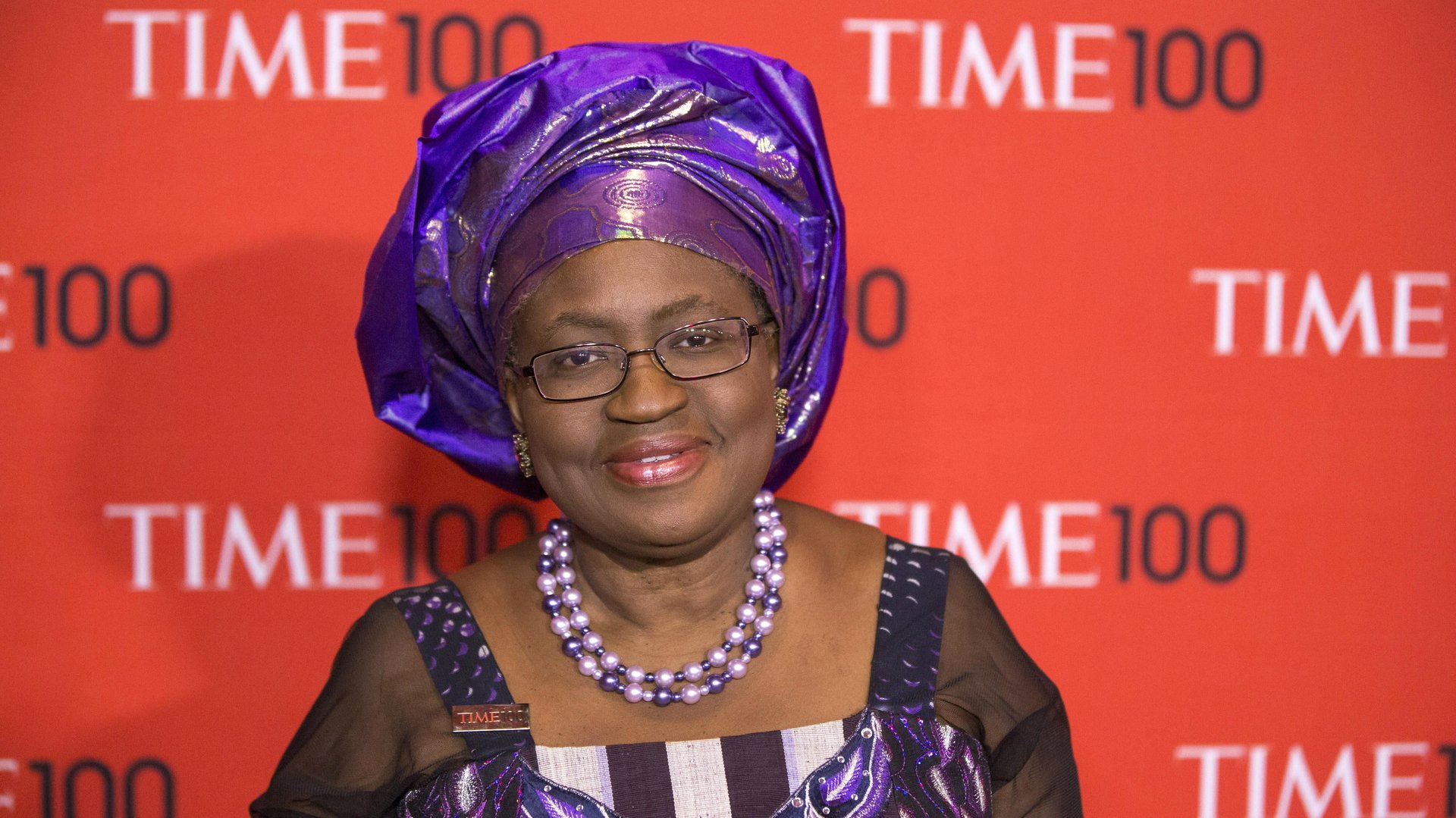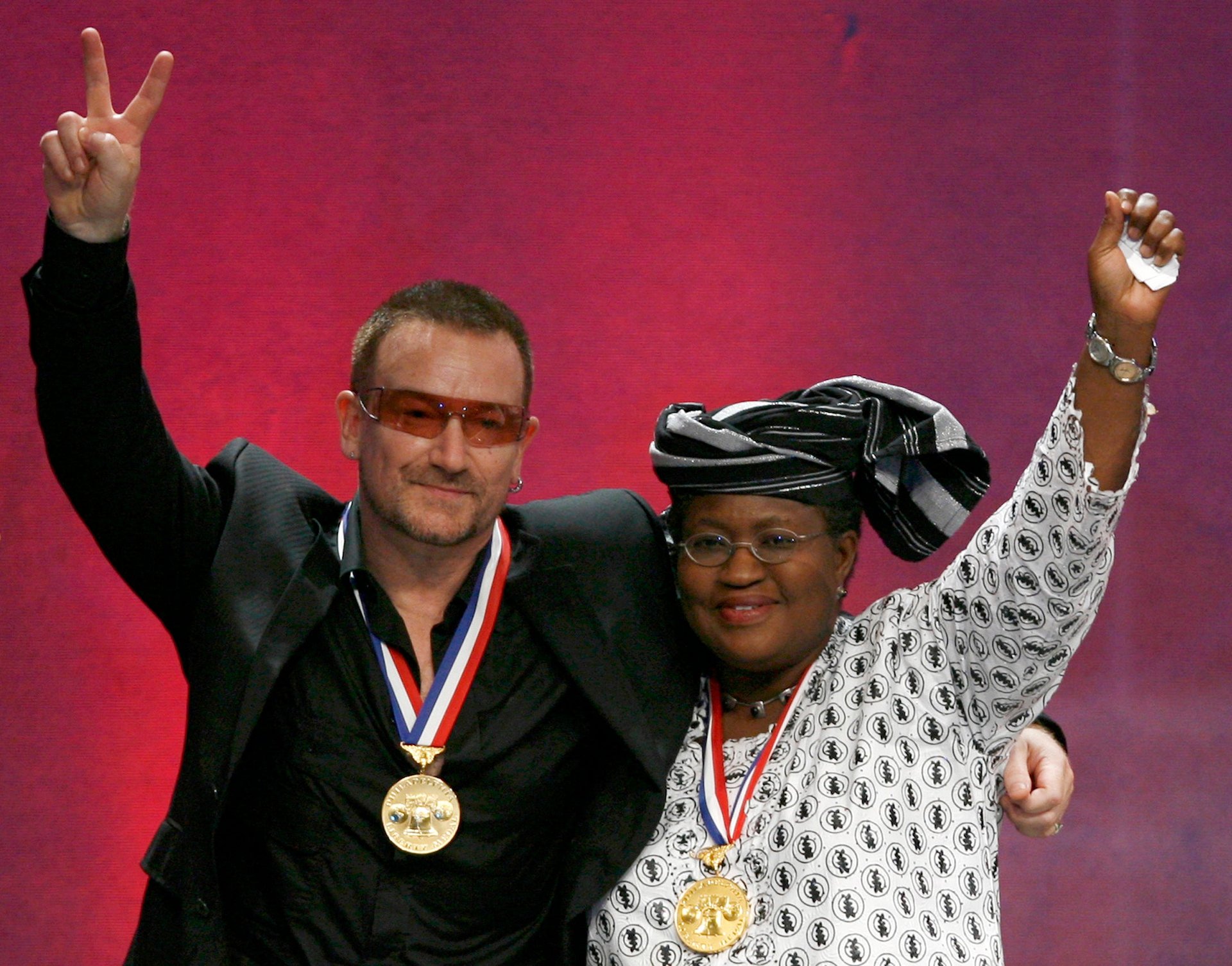Nigeria’s ex-minister Okonjo-Iweala is scrambling to save her name from a $2 billion scandal
One of Nigeria’s highest profile and best-regarded former government ministers Ngozi Okonjo-Iweala is caught up in a widening $2 billion arms procurement scandal which has already led to the arrest of the former national security adviser with former state governors, businessmen and the governor of the central bank also roped in.


One of Nigeria’s highest profile and best-regarded former government ministers Ngozi Okonjo-Iweala is caught up in a widening $2 billion arms procurement scandal which has already led to the arrest of the former national security adviser with former state governors, businessmen and the governor of the central bank also roped in.
Okonjo-Iweala, a former World Bank vice president, who was once in the running for the insititution’s presidency, had been at the heart of the, now tainted, Goodluck Jonathan presidency in the powerful dual role of minister of finance and coordinating minister of economy. She is one of the few ex-members of Jonathan’s government with much credibility on the global stage.

The former minister’s alleged involvement is centered around the deployment of funds recovered as part of the looting by former military dictator, Sani Abacha, in the 1990s. Adams Oshiomole, a serving governor and known critic of Okonjo-Iweala has accused her of being fully aware of inconsistencies regarding the alleged fraud particularly how the recovered funds were spent. His allegations follow the logic that Okonjo-Iweala, having served as a key member of the past administration must have been aware of the large-scale corruption in security spending.
Having come under fire for her involvement in the transfer of funds to the national security adviser with little oversight and accountability, the former minister has sought to beat off a specific allegation that she was involved in the illegal diversion of repatriated funds of up to $322 million.
In a statement, Okonjo-Iweala revealed that even though the recovered funds from Abacha’s loot were originally earmarked for development projects, a decision was made by a committee headed by president Jonathan to spend $322 million on security as Nigeria dealt with the rising of the deadly Boko Haram insurgency in the country’s north east. According to Okonjo-Iweala’s statement, the transfer was made with conditions to ensure accountability and repayment. The former minister took to social media to share a copy of the letter she claimed was sent to president Jonathan advising on the need for accountability.
In response, Okonjo-Iweala has been heavily criticized by civil society groups who suggest that regardless of the conditions under which the money was transferred there was little or no accountability.
As minister of finance, Okonjo-Iweala was not a member of the security council and so could not have been involved in decisions made on procurement of arms and spending of security funds. There is no evidence to suggest Okonjo-Iweala herself was responsible for misappropriation of funds but most of the criticism raises questions on whether she could have done more to prevent others doing so.
President Buhari, who hinged his campaign on a strong anti-corruption stance, has already directed that those involved in the scandal be prosecuted and the allegations around the spending of the repatriated funds could damage Okonjo-Iweala’s reputation.
The arms fraud scandal is particularly sensitive for most Nigerians who have been affected by the Boko Haram insurgency. In the last few years, the terror inflicted by the militant sect has led to the death of thousands with millions more displaced and forced to leave under dire conditions in refugee camps. The lack of arms sabotaged the fight for most of the last few years as several reports suggested that troops could not match the firepower of Boko Haram. Despite Nigeria’s long and sad history with high level corruption, the arms fraud scandal is one that is most directly linked to significant and obvious human casualties.
Okonjo-Iweala’s stint with Jonathan’s administration was her second time round serving in government. Former president Obasanjo convinced her to leave the World Bank in 2003 to become minister of finance. When Jonathan asked her to join his cabinet she agreed to do so only on the condition she was given more control of the economy than under Obasanjo.